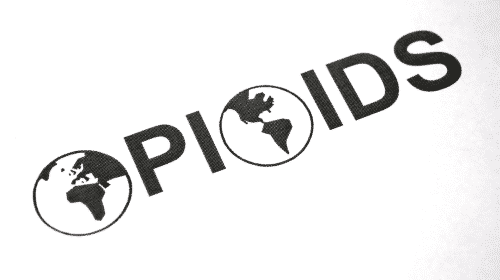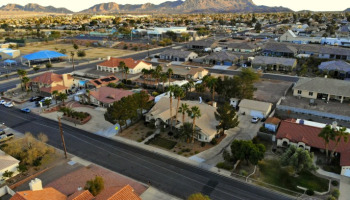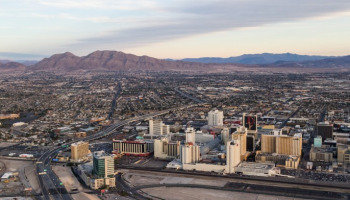Expert Insights
The third annual Southern Nevada Substance Misuse and Overdose Prevention Summit was held recently, and I was able to have many valuable discussions with community experts about the impact of fentanyl on our state’s opioid epidemic. Early data from the Southern Nevada Health District tells us the state saw a spike of nearly 30% in fatal overdoses between 2019 and 2020. Additionally, overdose deaths among those under the age of 25 more than doubled during that same timeframe. We already knew that the rates increased substantially over the COVID-19 pandemic, but fentanyl has caused some surprising demographic changes around the state as well. While overdoses in Southern Nevada have historically been middle-age adults, fentanyl overdoses skew towards a younger group of both males and females. The main reason for this demographic change? Young people are buying drugs off the street, yet they’re completely unaware of the fact that those black market products have been “cut” with fentanyl.
~ Jo Harvey
How Much Does Drug Rehab Cost in Nevada?
Nevada is ranked 47th nationwide in terms of addiction treatment affordability, with an average cost of drug and alcohol rehab of $62,530 (without insurance).
- Medical detox is the most expensive, with an average cost of $154,159
- Long-term inpatient drug rehab in Nevada costs an average of $55,179
- Outpatient addiction treatment in Nevada costs an average of $9,169
- Outpatient methadone treatment is the most affordable, with an average cost of $8,146
The exact cost of drug rehab in Nevada will vary based on several factors. These factors include the type of facilities available and the type of program that suits your individual needs. The best way to estimate future costs is to think about the following:
The type of treatment program you’ll need (inpatient vs. outpatient care)
The type of facility, as in luxury-style accommodations or basic amenities.
The duration of treatment (this could be anywhere from 30 to 90 days)
Your insurance policy or lack thereof
Choosing a facility in-network with health insurance provider
Whether you’re eligible for special financing
The location of the facility or detox center
How to Pay for Drug Rehab in Nevada
As of 2024, there were over 120 drug rehab facilities across the state of Nevada. These facilities accept several payment methods. Of those treatment facilities, the following numbers reflect how many accept their respective payment methods:
Private Pay and Insurance
Most people use health insurance to pay for drug and alcohol rehab. If you have health insurance, your plan may cover addiction treatment. Some plans make it easy to check what they cover online, but you may have to call and ask.
If you don’t have health insurance but make too much to get Medicaid, you might be able to get a discount on your insurance premiums. People making up to 400% of the federal poverty level can qualify for a discount if they reside in Nevada. The way to get subsidized health insurance is to apply through Nevada Health Link. These are some of the most common health plans in Nevada:
- SelectHealth
- Hometown Health
- Molina Healthcare
- Imperial Health Plan
- Aetna CVS
- Health Plan of Nevada
- Ambetter – Silver Summit
- Anthem Nevada
Medicaid
Medicaid is the health insurance program for people with low income. To qualify for Medicaid in Nevada you need to make 138% of the federal poverty level. If you’re pregnant, you can qualify if you make up to 165% of the federal poverty level. Your children may be able to get Medicaid even if you can’t. If they’re under the age of 19, they can get Medicaid if your family income is 205% of the poverty level. Apply for Medicaid through Access Nevada.
Medicare
Medicare is a federal health insurance program. If you’re over 65 or disabled you might be eligible to sign up. You can sign up for it directly through the federal government or you can get a commercially managed plan. Commercially managed plans are also known as Medicare Advantage plans. Medicare Advantage plans usually make you stay within a provider network, so if you’re thinking of using a Medicare Advantage plan to pay for addiction care, check what’s available in your network.
Military benefits
If you serve or have served in the Armed Forces you likely have some form of military health care benefits. If you get health care from the VA system, you can get addiction care there too. They have a full range of substance abuse services including residential rehab and methadone.
Family members of veterans may have CHAMPVA benefits. Those will cover you at some VA hospitals and some services that take Tricare, but you will want to check first. If you have Tricare you can get services anywhere within their network. Nevada is part of Tricare West.
Native American and tribal benefits
If you’re a member of a federally recognized tribe, you can get free outpatient services at one of the five IHS clinics serving Native Americans within the region. These clinics integrate addiction treatment into their clinics. If you need residential treatment, they may refer you out, but they will be able to make an assessment about what program might best fit your needs and refer you there.
Other low-cost options
Addiction treatment centers that are not for profit need to show that they benefit the community to earn their tax exempt status. They may have funding available that isn’t advertised, so these are good places to call and ask about scholarship options. Some religious organizations sponsor faith based addiction rehab that is free.
Are There Low-Cost or Free Drug Rehab Centers in Nevada?
The last thing you should worry about is not being able to afford alcohol or drug rehab in Nevada. While there are significant costs associated with room and board, there are plenty of options out there to suit all income levels.
Low-cost and free facilities are what we consider to be “state-funded.” These facilities receive their funding from both the federal and state government. They also commonly receive support from local governments who get funding from insurance programs like Medicaid, special grants, and so other programs.
As of 2024, there were over 120 drug rehab facilities across the state of Nevada. Of those treatment facilities, the following numbers reflect how many offer various low-cost or free addiction treatment programs:
To attend free or low-cost addiction treatment centers in Nevada, you’ll need to meet specific requirements. This would include the following:
- You must be a U.S. citizen
- You must have proof of income level (or lack thereof)
- You must prove that you don’t have health insurance
- You must be a tax-paying resident in the state of Nevada
To find Nevada drug rehabs and explore your options for treatment, call
800-681-1058
(Who Answers?)
to get help today.
Free Rehabs in Nevada
Nevada Health Centers
If you’re not sure where to start your substance use treatment journey, Nevada Health Centers may be a good choice. They offer primary care services with integrated mental health and addiction treatment. They’re a federally qualified health center with locations throughout Nevada. This type of clinic exists to work with people who have trouble accessing healthcare, such as those who can’t afford it. To maintain their federally qualified status, they can’t turn you away if you can’t afford to pay. Not only are their services affordable, but they have case managers who can connect you to other affordable services if you need a higher level of care. You will need to establish primary care with them to access their substance use services.
Ridge House
Ridge House in Reno accepts adult men and women who are just getting out of jail or at risk of going to jail. They take Medicaid but they also provide services at no cost to people who don’t have resources. Their services include residential and outpatient treatment and help finding work.
Vitality Unlimited
Vitality Unlimited accepts everyone without regard for ability to pay. They accept commercial insurance and Nevada Medicaid. They’re located in Elko, Carson City, Dayton and Reno. Their services range from residential drug rehab to outpatient treatment. They also have transitional housing, affordable housing and special services for veterans.
Step2
Step2 serves any adult woman with substance use disorder. They welcome women involved in the criminal justice system and women who are pregnant. If you have experienced domestic violence, they’re equipped to help you with treatment programs and counseling. Their services include residential drug and alcohol rehab, intensive outpatient addiction treatment and transitional housing.
Desert Winds Hospital
Desert Winds is a psychiatric hospital in Las Vegas that takes Medicaid. If you don’t have insurance or don’t want to use insurance, they can work with you to make an affordable payment plan. They treat adults and youths. Their programs are highly structured and capable of caring for people who are acutely ill due to detox or psychiatric illness.
Fearless Kind
Fearless Kind is an addiction treatment center for women in Las Vegas. They welcome women who need help with their recovery from addiction, trauma, eating disorders and other mental health conditions. They have scholarships available through their charitable foundation for people who can’t afford treatment. They operate a residential program, an intensive outpatient program and transitional housing.
Nevada Substance Use Statistics
Substance use in Nevada is an issue that comes with significant health and societal consequences. In 2016 alone, substance overdoses accounted for 64,000 deaths, surpassing motor vehicle-related deaths by 60%.1 Overdose-related deaths have since risen, and the opioid epidemic that hit the nation in the 90s is largely to blame.

On a national level, opioid-related deaths increased from 6.1 for every 100,000 people in 1999 to 19.8 in 2016.1

In 2016, Nevada saw an average of 13.8 opioid-related deaths per 100,000 people, surpassing the national average.1

By 2020, overdoses were averaging at roughly 55.5 per 100,000 people and involving more substances than just opioids. 2

In 2018, roughly 0.5% of individuals reported using methamphetamine at least once.2
Nevada Drug Laws
Marijuana and Cannabis Law
Recreational cannabis use is legal in Nevada. If you’re over 21, you won’t be fined or arrested for having up to one ounce of marijuana. You’re also allowed to grow up to six cannabis plants. The law changed to allow recreational use in 2017 making Nevada one of the earlier states to allow it.
Employment Drug Screening
Two years after legalizing recreational cannabis, Nevada made it illegal for employers to reject a job seeker due to their testing positive for it. There are no other state laws about drug testing, so employers can test for other drugs if they wish. There are federal laws that don’t allow employers to discriminate against protected groups when they’re deciding who they should drug test.
Drug and DUI Court
In Nevada, if you commit a non-violent crime you might be able to be tried in a specialty court instead of a regular court. Treatment courts exist to address the root causes of crime. Instead of going to jail, defendants have the option to participate in long-term treatment, frequent random drug testing and court supervision over a period of years. If you fail treatment court, your case will usually end up back in regular court. Nevada has treatment courts for drug and DUI offenses.
Fentanyl
Nevada passed a law in 2023 that made possessing more than 28 grams of fentanyl a class B felony. That is noteworthy because it’s a smaller quantity than what the federal law would prosecute as a class B felony. If you’re convicted under this law, the punishment would be to spend between one and ten years in a state prison.
Resources
- Nevada Population 2020 (Demographics, Maps, Graphs). (n.d.). Worldpopulationreview.com.
- NV Opioid Dashboard. (n.d.). https://opioid.snhd.org/
- FindTreatment.gov. (n.d.). https://findtreatment.gov/locator
- Andrea Blin. “Addiction and Substance Abuse in Nevada.” (2017).In The Social Health of Nevada: Leading Indicators and Quality of Life in the Silver State
- Whitley, R., & Azzam, I. (n.d.). Office of Analytics on behalf of Steve Sisolak Governor of State of Nevada
- U.S. Department of Health and Human Services. (2021, November 10).Mental Health and Substance Use Insurance Help
- Chanell Baylor. SAMHSA (2021).Medication-Assisted Treatment (MAT)
- Substance Abuse and Mental Health Services Administration. (2021, June 8).Methadone
- Substance Abuse and Mental Health Services Administration. (n.d.). Buprenorphine Treatment Practitioner Locator
- Substance Abuse and Mental Health Services Administration. (2020, September 15).Naltrexone
- Sierra Sage Recovery: https://sierratreatment.com/treatment-admissions/health-plan-of-nevada/
- Ridge House: https://www.rhdraft.com/
- Vitality Unlimited: https://vitalityunlimited.org/faq/
- Step2: https://step2reno.org/get-help/services/
- Fearless Kind: https://www.fearlesskind.com/donate/
- Desert Winds Hospital: https://desertwindshospital.com/insurance/
- Access Nevada: “https://accessnevada.dwss.nv.gov/
- Nevada Medicaid Brochure: https://dwss.nv.gov/uploadedFiles/dwssnvgov/content/Home/Features/Forms/Peace%20of%20Mind%20Brochure%204-22%20ADA.pdf
- Tricare West: https://www.tricare-west.com/content/hnfs/home/tw.html
- Tricare: https://www.tricare.mil/CoveredServices/IsItCovered/SubstanceUseDisorderTreatment
- CHAMPVA: https://www.va.gov/COMMUNITYCARE/programs/dependents/champva/index.asp
- Native American/Tribal Health: https://www.nevada211.org/native-american-services/indian-health-service-clinics/









